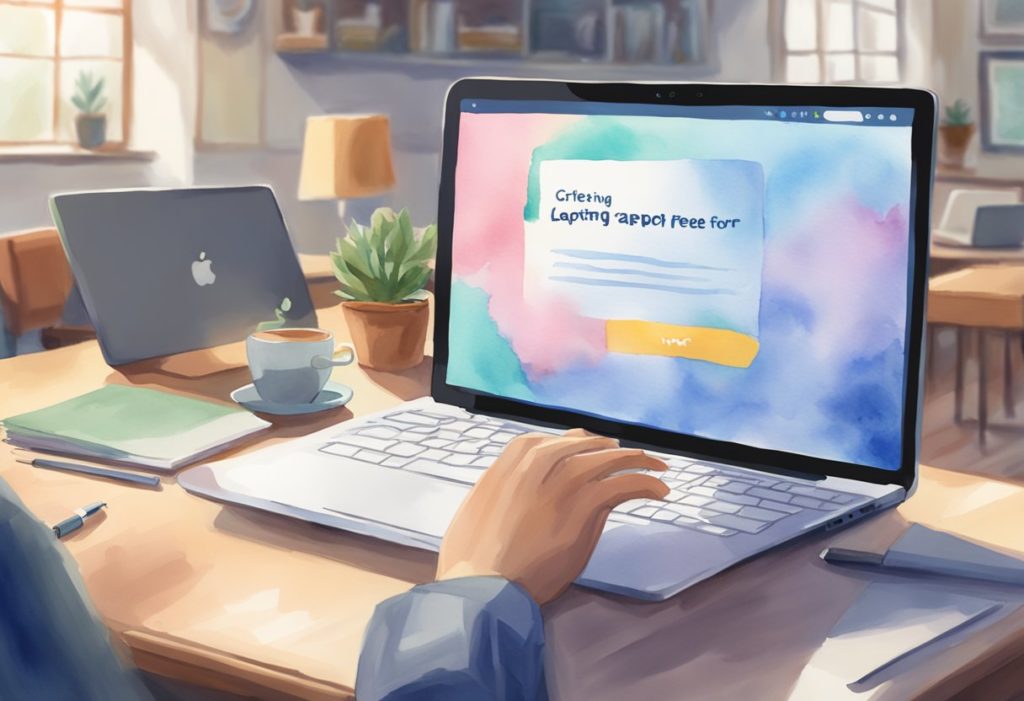The rapid growth of technology has transformed the educational landscape, particularly in higher education. Online colleges have become a popular choice for students seeking flexible and accessible learning options. One of the attractive features that some online institutions offer is access to free laptops for students to ensure they have the necessary resources to excel in their studies.
While online courses have been praised for their potential to provide low-cost access to high quality education, the cost of purchasing a laptop can still pose a significant financial burden for students. This is where colleges that offer free laptops can make a significant difference. In this article, we will explore some of the best online colleges that provide free laptops to their students, making higher education even more accessible and technologically inclusive.
Understanding Online Colleges Offering Free Laptops

With the increase in demand for distance education and online learning, many online colleges and schools have introduced various facilities to attract students. One such trend is providing students with free laptops or technology resources to enhance their learning experience.
Online colleges and schools understand the importance of technology in today’s education system. They have incorporated free laptops as a part of their online programs, ensuring that students have access to the required resources to succeed. This approach makes online education more accessible and enables students to participate in online courses, even if they don’t have their own devices.
There are multiple advantages to hosting online classes, where colleges offer free laptops. Some of the major benefits are:
- Affordability: Students can save on costs associated with attending a physical campus, such as housing, transportation, and other miscellaneous expenses.
- Flexibility: Online courses allow students to learn at their own pace and schedule, providing the opportunity to balance work, family, and personal commitments.
- Accessibility: With a laptop provided by the college, students can access course materials and resources from any location, ensuring an uninterrupted learning experience.
However, it is essential to consider a few factors when choosing an online college offering free laptops. These include program accreditation, laptop specifications (whether it meets the required hardware and software specifications for the program), and the availability of technical support.
It is also worth noting that not all online colleges offer free laptops to their students. Some institutions provide financial aid or subsidies to help students purchase required technology. Thus, it is crucial to research and compare various online colleges, schools, and online classes before making a final decision.
Online colleges that offer free laptops can reduce barriers to education, facilitate learning, and provide students with valuable resources. By understanding the benefits and factors when selecting an online program, students can make an informed decision and choose the best college or school that meets their needs.
Criteria for Getting a Free Laptop

The prospect of receiving a free laptop can be an exciting opportunity for college students, as it can help ease the financial burden associated with purchasing necessary technology for their education. To be eligible for a free laptop, students must often meet specific criteria set by the college or university. These eligibility requirements often vary by institution, but some common factors include financial need, enrollment status, and participation in certain programs or scholarships.
Students with demonstrated financial need are more likely to qualify for a free laptop program. Financial need is often determined through the Free Application for Federal Student Aid (FAFSA) or other financial aid documentation. Many colleges use this information to not only provide grants and loans but also to offer free laptops to students who require additional support. It is crucial for prospective students to fill out their FAFSA accurately and submit it before the deadlines.
Enrollment status plays a significant role in determining eligibility for a free laptop. Full-time students who commit to a specific number of credit hours per semester are more likely to benefit from these programs. Some institutions may also require a minimum GPA for continued eligibility, promoting academic success and commitment.
Participation in scholarship programs or other specialized initiatives may also make a student eligible for a free laptop. Examples include programs for low-income students or those providing technology access for specific disciplines or fields of study. Students should research available scholarships and the potential benefits they offer, like free laptops, when deciding which college or university to attend.
To be considered for a free laptop, students typically need to demonstrate financial need, be enrolled full-time, and participate in scholarship programs or other initiatives. By meeting these criteria, eligible college students can take advantage of valuable resources to support their academic journey.
List of Online Colleges That Provide Free Laptops

Several online colleges understand the importance of providing their students with the necessary tools for success, including access to reliable technology. Many of these institutions offer free laptops or tablets to their students to ensure they can effectively participate in online courses. Here’s a list of some notable online colleges that provide free laptops:
- University of Minnesota-Crookston: As part of their Laptop Program, all first-year students are provided with a laptop to assist with their academic success. The program has been operating since 1997 and has significantly impacted students’ overall educational experience.
- Northwest Missouri State University: This university provides full-time, on-campus students with a rental laptop at no additional charge. This rental program started in 1987, making it one of the longest-running programs of its kind. Students can use the laptops throughout their studies and return them upon graduation.
- Bethel University: As part of their Digital Campus Initiative, Bethel University offers all incoming freshmen an iPad to use for class-related tasks. This initiative aims to foster innovative and flexible learning environments.
- Moravian University: Comenius Access is a program designed to provide all traditional undergraduate students of Moravian University with a MacBook or iPad for their educational use. This program aims to support students’ success by incorporating technology into their learning experience.
- Chatham University: Chatham University offers all incoming first-year students an Apple MacBook Air as part of their technology package. This package also includes software and equipment to enhance students’ learning experience.
- Dakota State University: Global Connections is a campus-wide technology initiative at Dakota State University that provides all full-time, on-campus students a laptop. The program aims to prepare students for the modern technological workforce.
- Full Sail University: Full Sail provides all incoming students with Project LaunchBox, a comprehensive technology package that includes a MacBook Pro and various software and hardware tools tailored to their degree program.
- Strayer University: Strayer offers a free laptop to students who sign up for the Strayer Graduation Fund, which covers the laptop’s cost through a combination of scholarships and discounts.
- Indiana State University: Students enrolled in the online Laptop Initiative Program at Indiana State University receive a laptop to use for the duration of their studies.
- California State University – Monterey Bay: Through their Mobile Learning Initiative, CSU Monterey Bay offers all first-year students a MacBook Pro or iPad to support their education throughout their degree program.
- Valley City State University: VCSU provides all full-time students with a laptop as part of their technology services package.
- Delaware State University: DSU’s Hornet H.A.U.N.T. (Helping All Undergraduates Navigate Technology) program aims to provide students with a laptop or tablet to support their academic success.
These online colleges continue to recognize the importance of incorporating technology into their students’ education by offering free or subsidized laptops and tablets. These efforts help remove financial barriers and ensure that students have the necessary tools to excel in their studies.
Different Laptop Brands Provided

Many of the best online colleges understand the significance of having a reliable laptop to complete coursework and engage in digital classrooms. As a result, some institutions offer free laptops to their students. The variety of laptop brands provided by these colleges include popular names, such as Apple, Microsoft, Lenovo, and Dell.
Apple remains a popular choice among students due to its user-friendly interface and sleek design. Schools may offer a range of Apple laptops, from the lightweight MacBook Air to the powerful MacBook Pro. These devices are known for their exceptional performance, long battery life, and seamless integration with other Apple products.
Microsoft has made significant strides in the laptop market with their Surface line of devices. The Surface series combines the portability of a tablet with the functionality of a laptop, offering students a versatile option for their studies. Online colleges that provide Microsoft Surface devices cater to students who require a balance between performance and mobility.
Lenovo is another well-established laptop brand offered by some online colleges. It is known for producing reliable and durable laptops that can support the demands of online coursework. Their devices often come with long battery life, making them a suitable choice for students who need to use their laptops for extended periods.
Dell laptops have a reputation for being dependable and highly customizable machines. Offered by various online colleges, Dell laptops present students with a range of options in terms of performance, storage, and display. Some colleges may provide Dell Chromebooks, which run on Google’s Chrome OS and are designed for web-based applications, making them ideal for students attending online classes.
Online colleges that offer free laptops to their students typically provide a range of popular brands, ensuring students have access to quality devices for their studies. Some of the notable brands include Apple, Microsoft, Lenovo, and Dell, each catering to unique preferences and requirements when it comes to studying online.
Impact of Computer Systems on Learning

The integration of computer systems in education has revolutionized the way students learn and access information. With the advent of laptop learning programs, many online colleges are now providing free laptops as part of their curriculum for students. These laptops come equipped with various software and operating systems, aiming to enhance the academic experience and bridge the digital divide.
One of the key aspects of leveraging computer systems in education is the role of software. Programs such as Microsoft Office 365 offer a comprehensive suite of productivity tools, including Word, Excel, PowerPoint, and OneNote, enabling students to create, edit, and share documents seamlessly. Additionally, educational software like learning management systems (LMS) further enhances the learning experience by facilitating collaboration, communication, and assessment in a digital environment.
In terms of operating systems, Windows and Chrome OS are the most widely used in the educational sector. Windows offers a familiar, user-friendly interface and supports a wide range of applications, making it a popular choice among online colleges. On the other hand, Chrome OS, which powers Chromebooks, is a lightweight option with a focus on web-based applications and cloud storage. This operating system allows for fast boot times and a relatively lower cost of ownership compared to traditional laptops.
Technology plays a crucial role in the overall impact of computer systems on learning. Devices like laptops and tablets enable students to engage in mobile learning, giving them the flexibility to access resources and complete assignments at their own pace. Furthermore, computer systems can support personalized learning experiences, as well as foster communication and collaboration among students and instructors.
It is clear that computer systems, and the software and technology they employ, have a significant impact on the learning experience. With online colleges offering free laptops as part of their programs, this innovative approach ensures that students from all backgrounds have the opportunity to benefit from the advantages that computer systems bring to the table. By providing access to powerful software, versatile operating systems, and advanced technology, these institutions are equipping their students with the tools necessary to excel in today’s demanding educational landscape.
Importance of Financial Aid and Scholarships in Higher Education

Financial aid and scholarships play a crucial role in ensuring access to higher education for many students, especially those who may not have the financial means to cover tuition and fees. These forms of assistance can significantly reduce the burden of student loans, making it more feasible for students to pursue their academic goals.
Financial aid often encompasses a variety of options, including federal grants, state grants, work-study programs, and loans. Scholarships, on the other hand, are typically merit-based or need-based awards that do not need to be repaid. Both financial aid and scholarships are essential for leveling the playing field and promoting equal opportunities in higher education.
In today’s rapidly evolving world, technology has become an indispensable part of higher education. As a result, colleges and universities are increasingly providing students with access to technology resources such as laptops and other devices. Offering students free laptops can help alleviate the costs associated with purchasing high-quality computers and other technology resources needed for their academic pursuits. These resources may be available through technology grants, which can further support lower-income students in accessing the essential tools for their studies.
It is not uncommon for institutions to offer a mix of financial aid options and scholarships to cover a variety of needs. Some scholarships are specifically designed for students pursuing fields related to technology and engineering, while others cater to those in the arts, humanities, and social sciences. These targeted scholarships can help bridge the gap between the rapidly growing vocational fields such as computers and real estate and more traditional academic disciplines.
Moreover, financial aid and scholarships can also reduce the potential long-term impact of student loan debt. Loan forgiveness or income-driven repayment plans can assist graduates in managing their debt and pursuing their desired careers. It is important to note that student loan debt can have a lasting effect on an individual’s financial health; reducing this burden can greatly improve financial stability for students and their families.
Financial aid, scholarships, and technology grants are vital components that enhance accessibility to higher education. By addressing the financial barriers to entry, these resources continue to promote an inclusive learning environment and empower students to succeed in their chosen fields of study.
Individual Laptop Features and Specifications
When looking for the best online colleges that offer free laptops, it’s essential to not only consider the school’s reputation and curriculum but also the specifications and features of the laptops provided. By understanding the laptop’s configuration, students can determine whether a particular institution’s free laptop offering is suitable and meets their needs.
An important aspect of the laptop is its processor, which impacts its overall performance. Students should verify if the laptops offered come with an Intel Core processor or Apple’s M1 chip, as these have proven efficient and reliable for schoolwork and multitasking.
The laptop’s RAM is crucial for multitasking, as it allows more applications to run simultaneously without slowing down the device. Most laptops offered by online colleges should have a minimum of 8GB of RAM to ensure a smooth experience during online classes and assignments.
Storage is another important factor, as students will need adequate space to save files, projects, and any software required for their courses. A general recommendation is to have at least 256GB of storage, preferably in the form of an SSD (solid-state drive), which offers faster performance compared to a traditional HDD (hard disk drive).
In terms of display, the laptop’s screen size and resolution should be considered. Larger screens, such as 15 inches or more, provide more workspace, but could impact the laptop’s portability. A Full HD (1920×1080) display should suffice for most student needs, while professionals may benefit from higher resolution screens.
Some online colleges might offer laptops with LED displays, which provide better color accuracy and brightness, enhancing the visual experience during multimedia lectures or video conferences.
Battery life is a key consideration for students who need to use their laptops throughout the day without being tethered to a power outlet. A laptop with a battery life offering at least 8 hours is recommended to cover a full day of classes and work.
Having a good quality microphone integrated into the laptop is important for online classes, group discussions, and presentations. It ensures clear communication and reduces the need for an external microphone.
When evaluating online colleges offering free laptops, prioritize those that provide laptops with reliable processors, sufficient RAM and storage, quality displays, and ample battery life. Additionally, remember to consider the importance of features like LED displays and built-in microphones for an enhanced multimedia learning experience.
Benefits of Laptop Loaner Programs and Discounts

Laptop loaner programs and discounts provide substantial benefits to students, ensuring equal access to technology and enhancing their educational experience. Laptop for college initiatives have become increasingly vital as more coursework and resources move online.
One major advantage of laptop loaner programs is that they help bridge the digital divide by providing access to essential technology for students who may not be able to afford it otherwise. These programs offer either short-term or semester-long loaner laptops for students to complete assignments, engage in online courses, and access necessary resources. Institutions such as the University of South Florida have successfully implemented laptop loaner programs, demonstrating the potential these initiatives have to support students throughout their academic careers.
In addition to loaner programs, student discounts are another valuable resource. Students can save money on computers and software by taking advantage of these exclusive offers available through manufacturers and retailers. Subsidized or discounted laptops give students the opportunity to obtain essential equipment without breaking the bank, enabling them to focus on their studies rather than financial stress.
Laptop programs create a more level playing field for students by granting access to up-to-date technology. Modern devices are required to run the latest software and tools, and research indicates that students with access to high-quality devices, coupled with necessary training, benefit significantly from their investment.
Here’s a quick summary of the benefits of laptop loaner programs and discounts:
- Equality in accessing technology
- Affordability for students
- Up-to-date devices and software
- Enhanced learning experience
- Access to online resources and tools
Laptop loaner programs and student discounts play a vital role in the success of today’s students. By providing accessible and affordable laptops, these initiatives ensure that learners can engage with their courses, access essential resources, and develop the digital skills necessary for academic success.
Exploring Tablet Options for Online Study

As online education continues to grow, digital devices like tablets have become increasingly popular tools for students. Tablets provide a portable and versatile solution for accessing course content, participating in activities, and collaborating with peers. In this section, we will discuss some popular tablet options, such as iPads and other Apple products, that are suitable for online study.
Apple’s iPad has become a top choice for online learners due to its many features and supportive ecosystem. iPads offer a high-quality touch screen, excellent performance, and seamless integration with other Apple devices. Moreover, iPads have access to a vast array of educational apps and resources through the App Store, further enhancing learning experiences. Available in various sizes – iPad, iPad mini, iPad Air, and iPad Pro – students can choose the model that best fits their needs and budget.
Apart from iPads, there are other tablet options available in the market that cater to different needs of online learners. Android tablets, such as Samsung Galaxy Tabs, provide an affordable alternative with plenty of customization options. Google’s Play Store also hosts a substantial collection of educational apps and resources catering to students in various fields of study.
Microsoft Surface tablets run on Windows operating systems, offering a more traditional computer experience. With a detachable keyboard and stylus compatibility, Surface devices excel in productive tasks and are a great option for online students who require access to specific Windows applications.
When selecting a tablet for online study, students should consider several factors to ensure the chosen device meets their needs:
- Performance: The tablet must have the processing power to handle class-related activities, such as streaming video, multitasking, or running resource-intensive apps.
- Battery Life: Adequate battery life is crucial to ensure the uninterrupted learning experience during online classes or study sessions.
- Display Size and Resolution: A comfortable display size, with a sharp and clear resolution, aids in easy reading, note-taking, and multimedia consumption.
- Storage Capacity: Adequate storage to install necessary apps, download course materials, and save assignments or projects.
- Compatibility with Required Software: Ensure that the tablet can run the necessary software, apps, or tools required for online coursework.
Tablets like iPads and other alternatives offer a portable and versatile solution for online study, catering to various learning requirements. Students must carefully compare specifications and features, such as performance, battery life, display size, storage capacity, and software compatibility, to select the best tablet to enhance their online learning experience.
Warranties, Support and After-sales Services

When choosing an online college that offers free laptops, it is crucial to consider the warranties, support, and after-sales services provided by the institution. Most of these colleges offer laptops on a lease or an ownership basis. Understanding the terms and conditions of these offers can save students from potential issues in the future.
Students can expect a standard manufacturer’s warranty on their laptop, which usually covers any defects in materials or workmanship for a specified period. This warranty ranges from one to three years, depending on the laptop’s brand and model. While some online colleges may offer an extended warranty, others may provide assistance in connecting students with the manufacturer’s service center for any repairs or maintenance.
In addition to warranties, students should inquire about technical support offered by the institution. Online colleges often have dedicated IT departments or helpdesks that provide assistance on various technical issues students may encounter. This support can include software installation, troubleshooting, and hardware repairs. Some institutions may also offer online support for quick solutions to issues.
After-sales services play an important role in keeping the laptop functional throughout the student’s academic journey. Here are some essential aspects of after-sales services that students should consider:
- Repairs: Prompt and efficient repair services help students avoid delays in their studies due to hardware or software problems.
- Software updates: Regular updates for the operating system and related software are crucial to maintain device compatibility and performance.
- Maintenance: Periodic maintenance, such as cleaning and component replacement, ensures that the laptop remains in optimum condition.
When selecting an online college that provides free laptops, potential students should take into consideration the warranty, technical support, and after-sales services offered by the institution. These services ultimately contribute to a hassle-free academic experience, ensuring students can focus on their education without any distractions.





